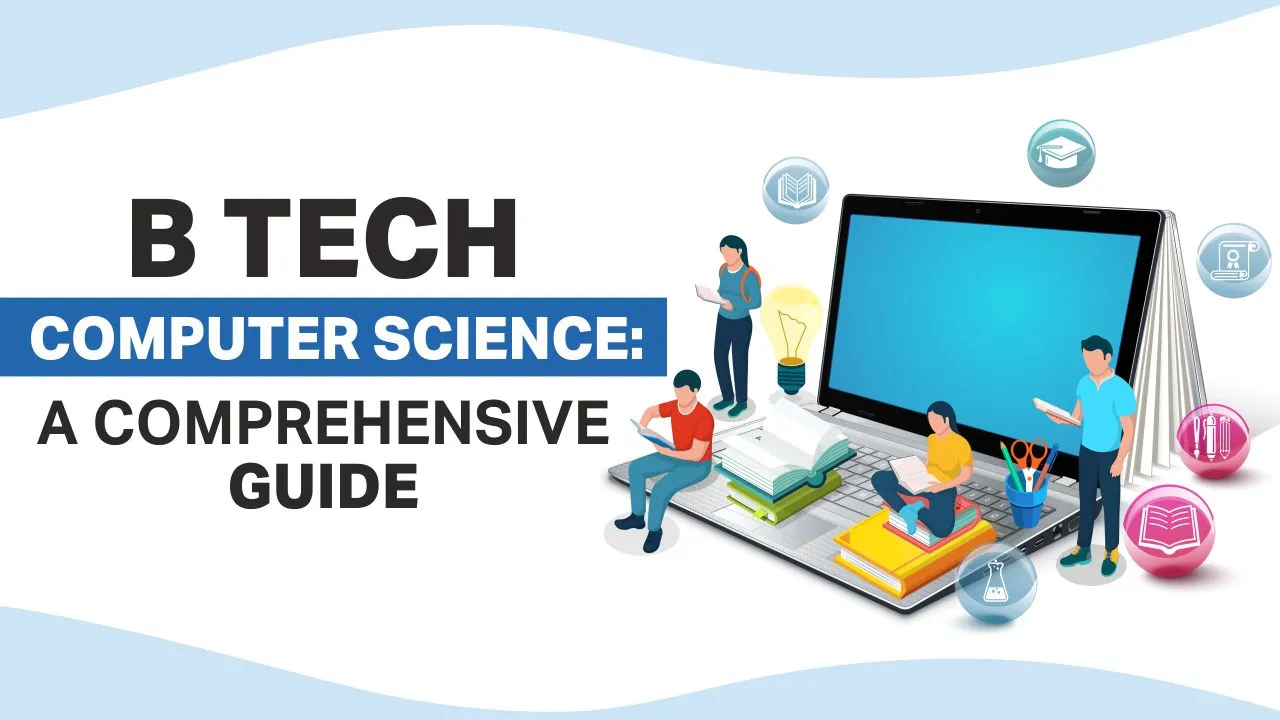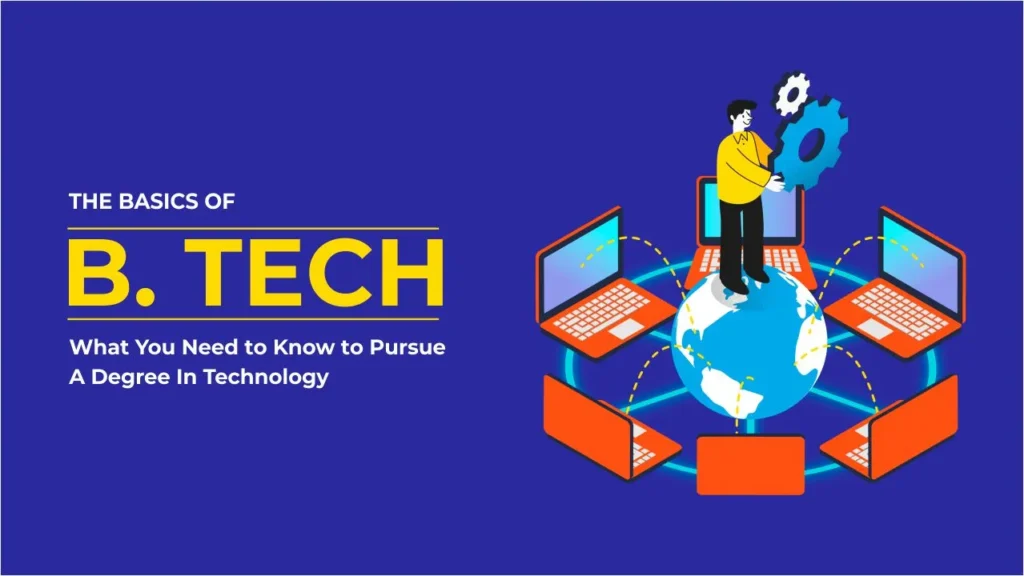Physical Address
304 North Cardinal St.
Dorchester Center, MA 02124
Physical Address
304 North Cardinal St.
Dorchester Center, MA 02124

Are you considering a career in engineering and technology? The Bachelor of Technology (B Tech) degree might be your gateway to a rewarding future. This undergraduate program has become one of India’s most sought-after courses, producing skilled engineers who drive innovation across industries worldwide.
B Tech, or Bachelor of Technology, is a four-year undergraduate degree program that focuses on the practical application of engineering principles and technological solutions. Unlike traditional engineering degrees that emphasize theoretical knowledge, B Tech programs blend academic learning with hands-on experience, preparing students for real-world challenges in the rapidly evolving tech landscape.
A typical B Tech program spans four years, divided into eight semesters. Each semester runs for approximately six months, allowing students to gradually build their expertise through progressive learning modules.
The academic year follows a structured pattern:

The engineering field offers diverse specializations, each catering to different interests and career goals.
Computer Science Engineering (CSE) remains the most popular choice, offering excellent placement opportunities and high starting salaries. Students learn programming languages, software development, and system design.
Mechanical Engineering focuses on designing, manufacturing, and maintaining mechanical systems. This branch offers versatility across industries like automotive, aerospace, and manufacturing.
Electrical Engineering deals with electrical systems, power generation, and electronic devices. Graduates find opportunities in power companies, electronics firms, and telecommunications.
Civil Engineering involves planning, designing, and constructing infrastructure projects like buildings, roads, and bridges. With India’s infrastructure boom, civil engineers remain in high demand.
Artificial Intelligence and Machine Learning has gained tremendous popularity as AI transforms industries. Students learn to develop intelligent systems and automated solutions.
Data Science and Analytics prepares students for the data-driven economy, teaching statistical analysis, visualization, and predictive modeling techniques.
Cybersecurity addresses the growing need for digital protection, covering network security, ethical hacking, and information protection strategies.
Biotechnology Engineering combines biology with engineering principles, opening doors in pharmaceuticals, healthcare, and research organizations.
To pursue a B Tech degree, students must complete their 12th grade with Physics, Chemistry, and Mathematics (PCM) as core subjects. Most institutions require a minimum aggregate of 50-75% marks, depending on the college’s reputation and category reservations.
JEE Main serves as the primary gateway for admission to National Institutes of Technology (NITs), Indian Institutes of Information Technology (IIITs), and other centrally funded technical institutions. Over 10 lakh students appear for this exam annually.
JEE Advanced provides entry to the prestigious Indian Institutes of Technology (IITs). Only the top 2.5 lakh JEE Main qualifiers can attempt this highly competitive examination.
State-Level Exams like MHT CET (Maharashtra), TS EAMCET (Telangana), and KCET (Karnataka) offer admission to state engineering colleges and some private institutions.
Private College Exams such as BITSAT, VITEEE, and SRMJEEE provide direct admission to renowned private engineering colleges.
Fresh B Tech graduates can expect starting salaries ranging from ₹3-8 lakhs per annum in India, depending on their specialization and company. Computer Science graduates often command higher packages, with top-tier companies offering ₹15-30 lakhs for exceptional candidates.
With experience, senior engineers can earn ₹10-50 lakhs annually, while those in leadership positions or specialized fields may command even higher compensation packages.
The Indian engineering sector continues expanding, driven by digitalization, infrastructure development, and emerging technologies. Government initiatives like “Make in India” and “Digital India” create additional opportunities for engineering graduates.
MBA Programs attract engineering graduates seeking leadership roles. The combination of technical knowledge and business acumen makes these professionals highly valuable in management consulting, project management, and entrepreneurship.
Specialized Certifications in areas like cloud computing, digital marketing, or data analytics help engineers diversify their skill sets and explore new career avenues.
The engineering education landscape continues evolving with industry demands. Modern B Tech programs now emphasize:

The Bachelor of Technology degree remains one of India’s most valuable undergraduate programs, offering excellent career prospects, diverse specialization options, and pathways to higher education. As technology continues reshaping industries, B Tech graduates play crucial roles in driving innovation and solving complex challenges.
Whether you’re passionate about developing cutting-edge software, designing sustainable infrastructure, or creating breakthrough medical devices, a B Tech degree provides the foundation for a fulfilling engineering career. With proper planning, dedication, and the right specialization choice, this four-year investment can unlock decades of professional growth and contribution to society’s technological advancement.
The key to success lies in choosing the right specialization, excelling in your studies, and continuously updating your skills to match industry demands. As engineering continues evolving, B Tech graduates who embrace lifelong learning and adapt to new technologies will find themselves at the forefront of innovation and progress.